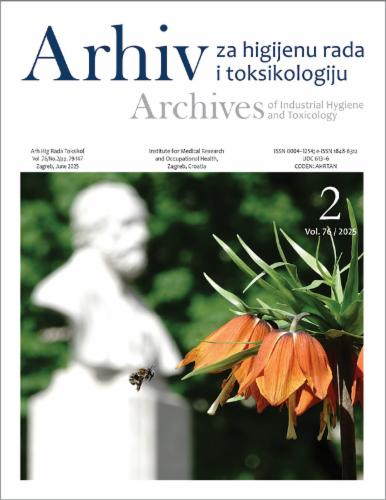How can simple household procedures reduce exposure to pesticides from fruits and vegetables: current habits and recommendations
Catégorie d'article: Original Article
Publié en ligne: 30 juin 2025
Pages: 124 - 129
Reçu: 01 avr. 2025
Accepté: 01 juin 2025
DOI: https://doi.org/10.2478/aiht-2025-76-3984
Mots clés
© 2025 Antonija Sulimanec et al., published by Sciendo
This work is licensed under the Creative Commons Attribution 4.0 International License.
Healthy as they may be, fruits and vegetables may significantly contribute to dietary pesticide intake in modern households. However, certain simple procedures, such as washing and peeling food, can help reduce this intake. Our study looks deeper into the habits of cleaning fruits and vegetables before consumption or cooking in the households of the Croatian capital Zagreb and its surroundings, based on data collected in the first, 2022–2023 wave of a larger cohort study “Exposure to pyrethroid and organophosphate insecticides in children – risk assessment for adverse effects on neuropsychological development and hormonal status”. Data were collected with a questionnaire completed by volunteering parents or legal guardians. Although almost all households reported washing fruits and vegetables before consumption or cooking, over 60 % did not peel fruits and vegetables that can be consumed with the peel, such as apples, pears, peaches, nectarines, and tomatoes (raw and cooked). In addition, we provide general recommendations for reducing dietary exposure to pesticide residues through simple household procedures. Croatian consumers should be better informed about which food products may contribute to higher pesticide exposure and how to reduce it.
 Profil Orcid
Profil Orcid